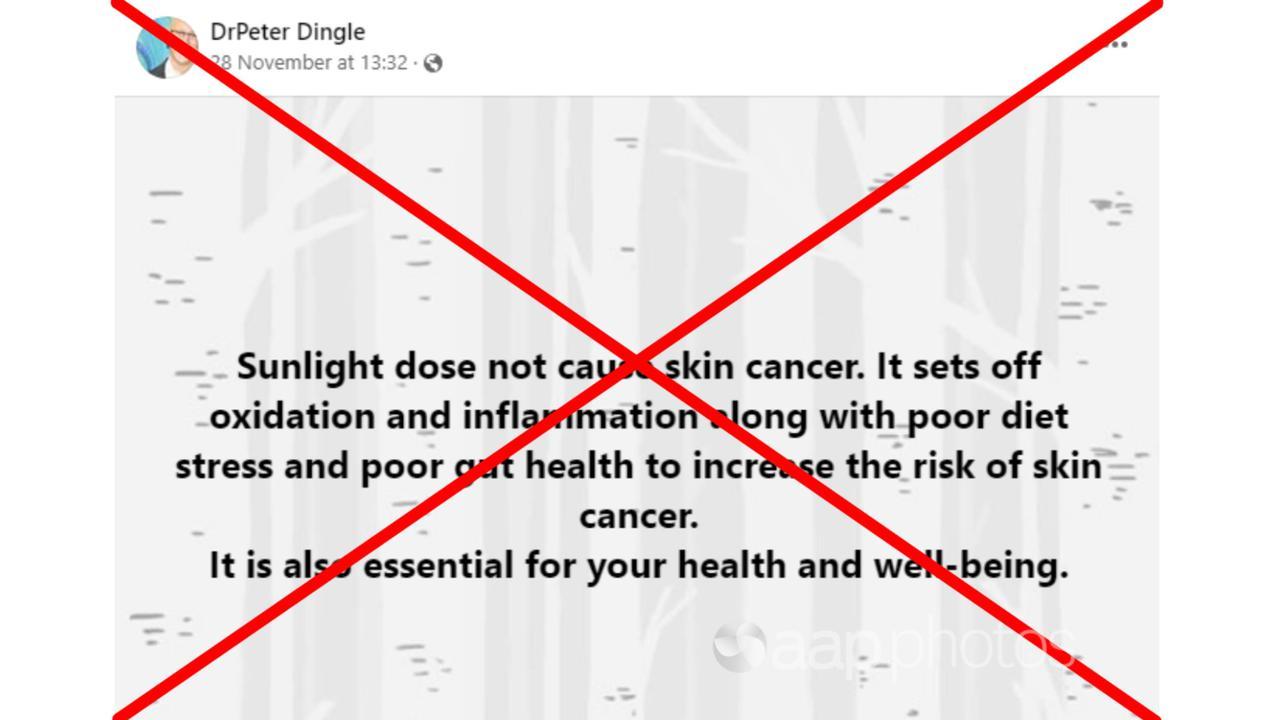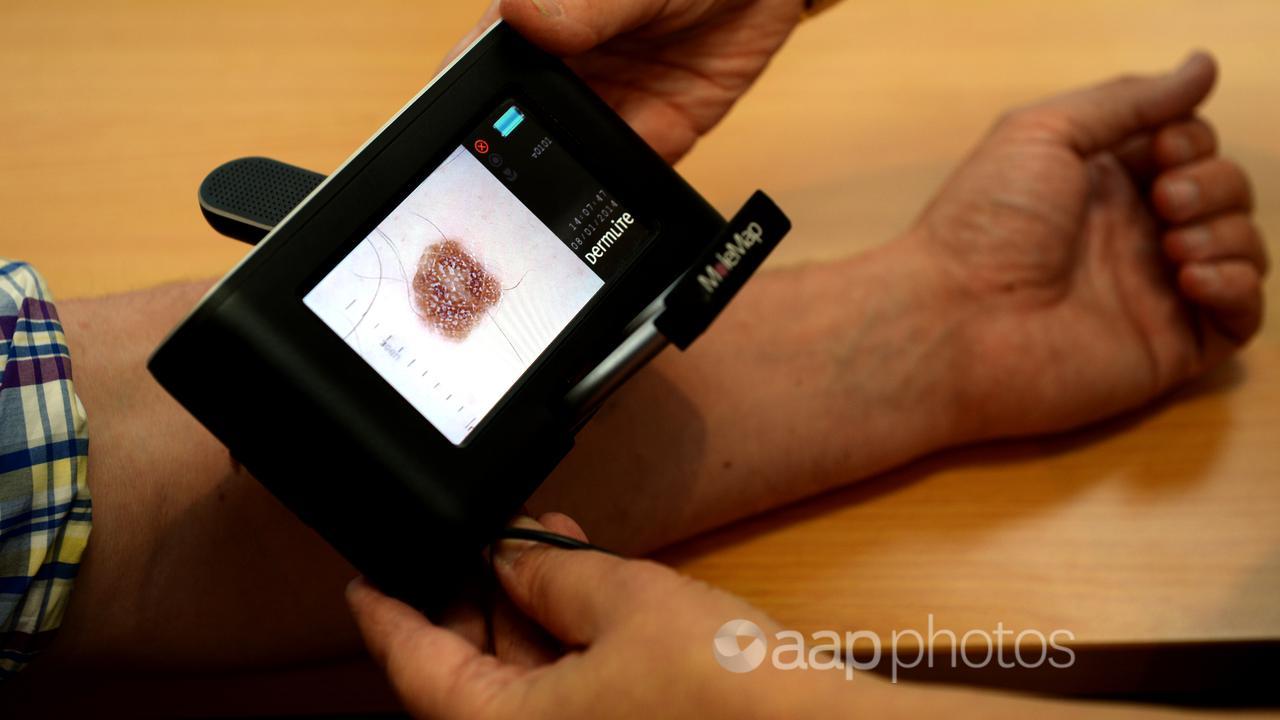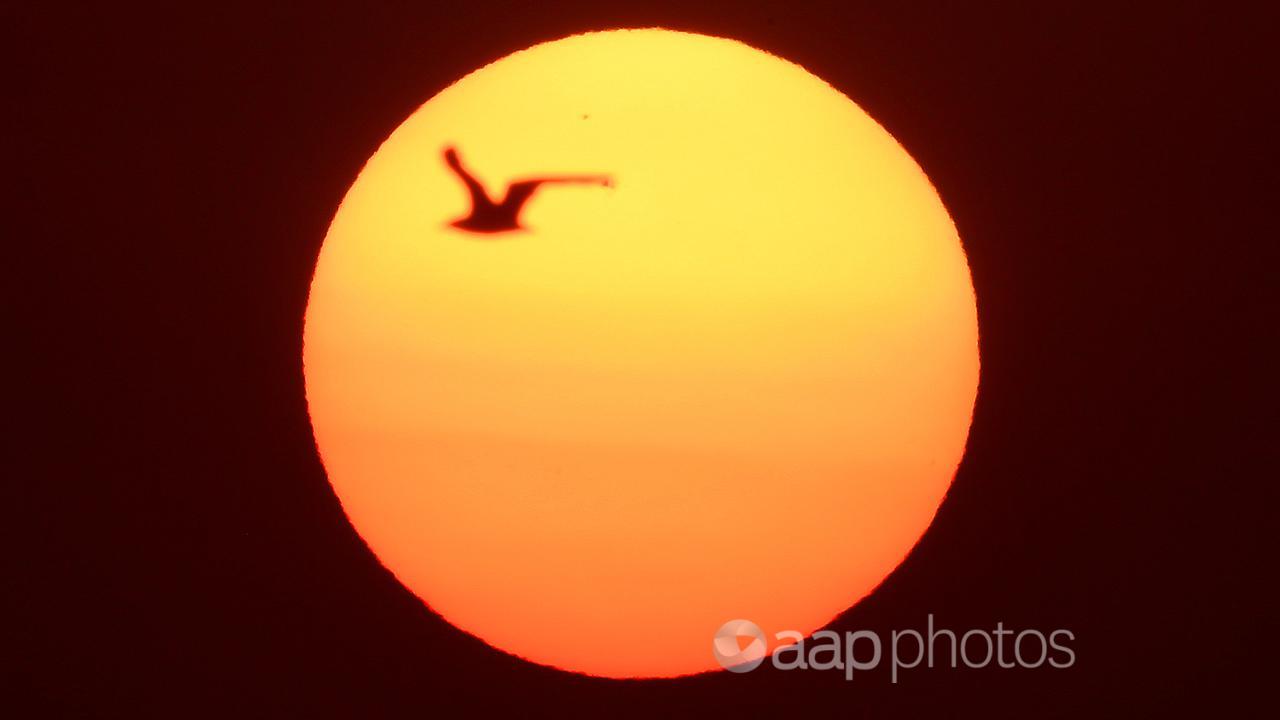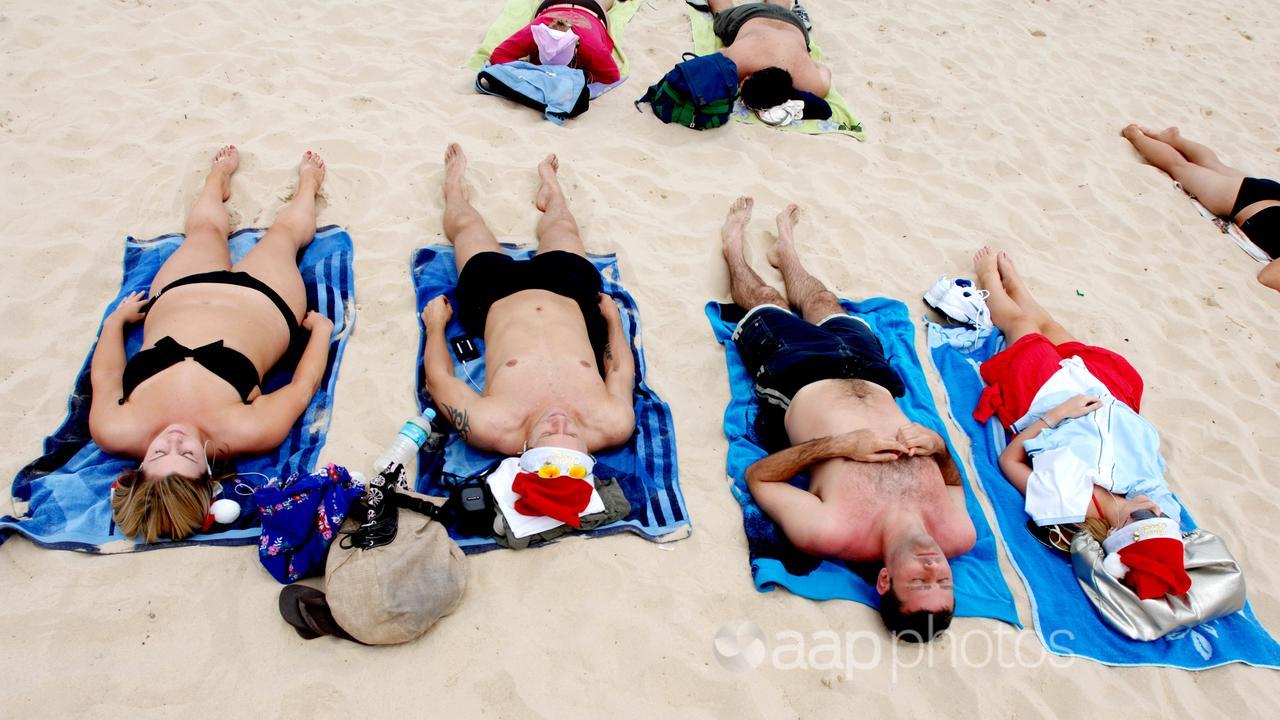Four decades after Australians were first urged to slip, slop, slap, a “motivational health speaker” has claimed sunlight does not actually cause skin cancer.
Experts told AAP FactCheck the claim is dangerous and wrong, and that a wealth of research shows the ultraviolet (UV) radiation component of sunlight is a carcinogen.
Cancer Australia has said sun exposure causes an estimated 95 per cent of melanomas and about 99 per cent of non-melanoma skin cancers in Australia.
The claim was made in a Facebook post by Dr Peter Dingle.

The post states: “Sunlight dose (sic) not cause skin cancer. It sets off oxidation and inflammation along with poor diet stress and poor gut health to increase the risk of skin cancer. It is also essential for your health and well-being.”
In response to challenges in the comments below his statement, Dr Dingle said: “The point I am trying to get people to look at is that there are multiple risk factors. Not just the sun.”
Experts told AAP FactCheck that while it is true oxidation and inflammation may be involved in skin cancer causation, solar ultraviolet (UV) radiation is what causes both these processes, and UV in sunlight is the cause of most skin cancer in people of European heritage.
Adele Green, senior scientist at QIMR Berghofer Medical Research Institute, said it was wrong to say sunlight does not cause skin cancer.
“It’s simply the case that solar UV causes skin cancer,” Professor Green said in an email.
“Poor diet may increase the risk, but it is a relatively small increase compared with the risk of high-dose UV (acutely or over years) to white skin. I know of no evidence that ‘poor gut health’ increases skin cancer risk.”

Cancer epidemiologist Anne Cust agreed the post’s claim was false.
“UV or ultraviolet radiation is a type of invisible energy produced by the sun and some artificial sources, such as arc welders and solariums,” Professor Cust told AAP FactCheck in an email.
“It can cause sunburn, premature ageing and eye damage. Exposure to UV radiation causes up to 95 per cent of melanomas, the most dangerous form of skin cancer.”
Prof Cust said she was not aware of any high-quality evidence linking poor diet and gut health to an increase in the risk of skin cancer.
Diona Damian, professor of dermatology at the University of Sydney, told AAP FactCheck the scientific evidence showed the post was false.
“There is a vast wealth of evidence confirming that the ultraviolet radiation component of sunlight is a carcinogen which both damages DNA in the skin, leading to mutations if not properly repaired, as well as suppressing the skin’s anti-tumour immune surveillance defences,” Professor Damian said in an email.
In response to the claim sunlight just sets off oxidation and inflammation, Prof Damian said: “Some UV-induced damage (mainly by UVA) does relate to oxidative effects on DNA; most UVB induced damage is not oxidative; it is still UV-induced DNA damage. This damage can occur in the absence of any clinically apparent inflammation. ‘Poor diet stress and poor gut health’ is not recognised as a key contributor to skin cancer.”

Dr Dingle is not a medical doctor. He was criticised by the Western Australia State Coroner in 2010 over the role his advocacy of homeopathy played in his wife’s death from colorectal cancer.
Penelope Dingle died in 2005 after initially using homeopathy and nutritional supplements to treat her cancer and delaying surgery until it had spread.
The coroner found Dr Dingle “supported and assisted” with the homeopathy treatment and “kept the deceased away from outside influences” which contributed to the “loss of a chance of survival” (p 96).
“Ultimately, however, the decisions were those of the deceased, sadly those decisions were to a large extent based on misinformation,” State Coroner Alastair Hope concluded.
AAP FactCheck has previously debunked a claim early morning sunlight is not harmful.
The Verdict
The claim sunlight does not cause skin cancer is false. Medical experts told AAP FactCheck solar ultraviolet (UV) radiation from exposure to sunlight causes the vast majority of skin cancers. Cancer Australia says sun exposure causes an estimated 95 per cent of melanomas and about 99 per cent of non-melanoma skin cancers.
False – The claim is inaccurate.
* AAP FactCheck is an accredited member of the International Fact-Checking Network. To keep up with our latest fact checks, follow us on Facebook, Twitter and Instagram.
All information, text and images included on the AAP Websites is for personal use only and may not be re-written, copied, re-sold or re-distributed, framed, linked, shared onto social media or otherwise used whether for compensation of any kind or not, unless you have the prior written permission of AAP. For more information, please refer to our standard terms and conditions.


















